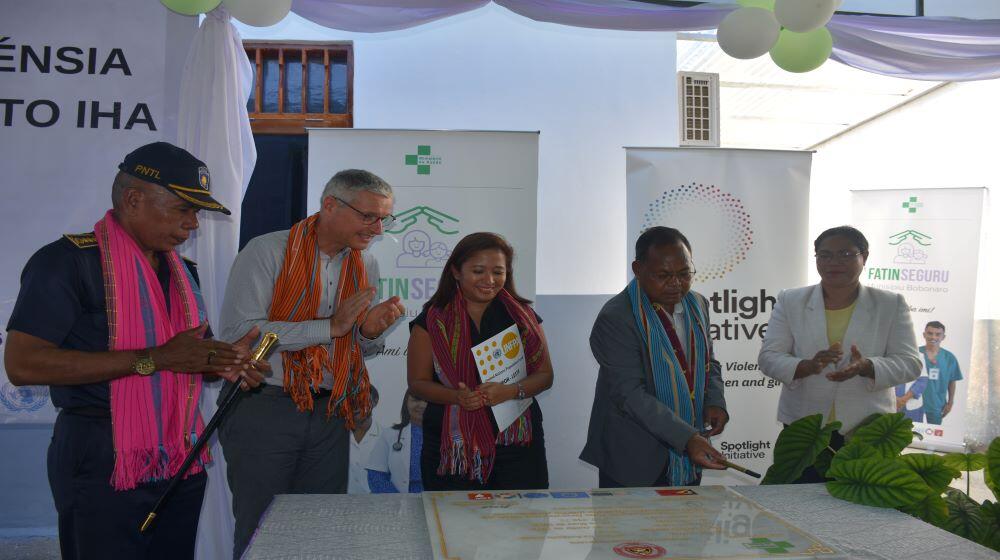Though gender-based violence (GBV) is the largest category of crimes reported to the police in Timor-Leste, with almost two out of every three Timorese women (15-49 years) report having experienced intimate partner violence in their lifetime, it is disturbing that most of the cases are often not reported to authorities.
“Existing traditions and culture, for example social norms regarding women’s and men’s roles in the society, is still a big problem,” observes Ana Maria, a healthcare worker offering healthcare services to GBV survivors in Liquica municipality.
Ordinarily, health professionals offer the first-line of support for survivors to access healthcare services, and to escape abusive situations.
“The government and partners need to support healthcare workers in training and in handling cases of GBV to sensitize the community on the availability of GBV services and impact of GBV in the society.
"Most people do not know where to report, and also some believe that GBV cases must only be resolved within the family setup,” said Ana Maria.
Reproductive health facilities – providing family planning or antenatal care services -- can play a vital role as an entry point for identifying violence and providing medical care to women and girls survivors seeking care for injuries and associated problems; including providing GBV-related information and services.
Similarly, through effective collaboration and strengthening of healthcare systems, referrals to other essential services, such as shelters, counseling centers or specialized medical care can be recommended.
The launch of Safe Space at Atabae Community Health Center (CHC) in Bobonaro municipality, on May 26, together with “Standard Operating Procedures (SOPs) for Health Care Providers to address Gender-based Violence Including Intimate Partner Violence in the Safe Spaces”, will bring services closer to victims.
The Safe Space, a joint effort between the Ministry of Health and UNFPA, under the EU-funded Spotlight Initiative, underlines the need to bring together all stakeholders in ending GBV in Timor-Leste.
Having Safe Spaces within the health sector is critical to identify GBV cases and to provide comprehensive quality of first-line services.
The opening of the Safe Space, officially launched by H.E. Marc Fiedrich, European Union Ambassador in Timor-Leste and H.E. Bonifácio Mau Coli dos Reis, Vice Minister of Health in Timor-Leste, will offer a comprehensive range of services to victims – from immediate medical attention, psychosocial counseling and referral to shelters and other forms of support.
In Timor-Leste, the Spotlight Initiative is being implemented through five UN agencies (UNFPA, ILO, UNDP, UNICEF, and UN Women), in support of the Government, and in close collaboration with civil society, the World Health Organization (WHO), International Organization for Migration (IOM), and the UN Human Rights Advisor's Unit (HRAU).
UNFPA, in collaboration with the Timor-Leste Ministry of Health, has been working together to strengthen the capacity of the health sector in responding to gender-based violence (GBV) through the establishment of safe spaces in health facilities.
“There is no single approach to preventing and responding to gender-based violence: political will, effective capacity building, health systems strengthening, institutional changes and strong multi-sectoral coordination are needed," says Pressia Arifin-Cabo, UNFPA Country Representative in Timor-Leste.
For more information, contact:
Suleiman Okoth
Communications and Programme Support Specialist
United Nations Population Fund (UNFPA), Timor-Leste
UN House, Caicoli Street
Dili, Timor-Leste
Mobile: +670 75169796
WhatsApp: +254 780534026
Email; okoth@unfpa.org


